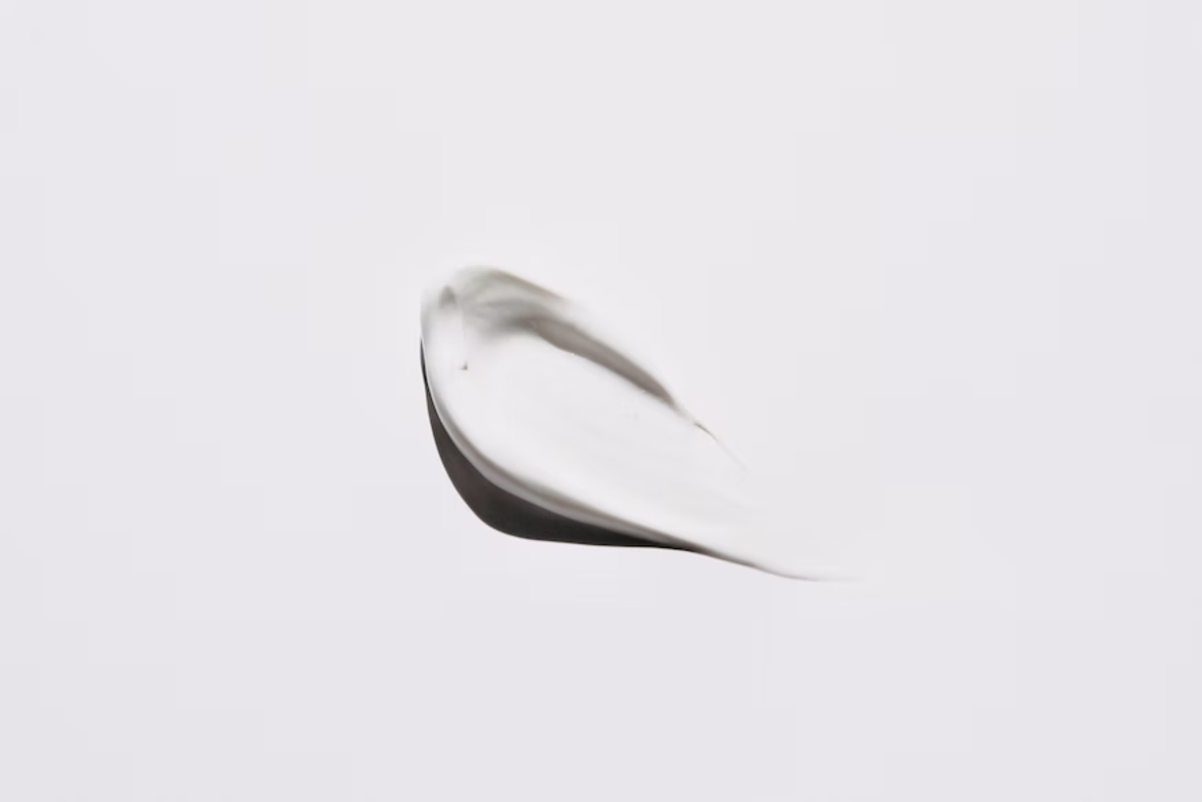How it works:
Share your skin goals and snap selfies
Your dermatology provider prescribes your formula
Apply nightly for happy, healthy skin
How it works:
How it works:
Share your skin goals and snap selfies
Your dermatology provider prescribes your formula
Apply nightly for happy, healthy skin
How it works:
Betaine in skincare: Soothe and hydrate your skin
If you have dry skin, this ingredient may be worth adding to your routine.



Dry, irritated skin can occur for a variety of reasons—and luckily, there are plenty of ways to treat it! For instance, products containing betaine can soothe skin and increase hydration. Alongside playing an important role in cellular reproduction, betaine can be used in skincare to help protect the skin and keep it moisturized.
Here, our dermatology providers will explain everything you need to know about how betaine is used in skincare and how you can use it to hydrate your skin.
What is betaine?
Betaine, also known as trimethylglycine, is a modified amino acid used by humans, animals, and plants alike. This substance naturally occurs in the body and serves several important purposes. One of betaine’s functions is to help protect cells from environmental stress such as harsh temperatures or low water.¹
The science behind betaine in skincare
Hydration
Betaine is used as a humectant in skincare because it helps to attract water.² Humectants help keep your skin hydrated by drawing and binding water from the deeper layers of your skin and bringing it to the outermost layer.³ Betaine is also an essential osmolyte, which helps balance the fluids in your cells.⁴
Soothing (anti-irritant and anti-inflammatory)
Not only is betaine hydrating, but it can also prevent irritation and inflammation in your body. One study found that adding betaine to detergents reduced the irritation they caused participants.⁵ So, if you’re looking for a gentle product for your sensitive skin that may potentially help soothe and hydrate it, you can add betaine to your list of ingredients to consider.
Oral supplementation with betaine has also been shown to reduce inflammation by inhibiting the activity of certain protein complexes and lowering the production of specific cytokines that cause inflammation in the body.⁶
Anti-aging
Research shows that betaine suppresses inflammation as you age. It does this by preventing a very specific biochemical reaction that causes inflammation during aging.⁷ With its powerful anti-inflammatory properties, betaine may be able to slow down the negative dermatological effects of aging so you enjoy a younger look and fresh glow. If having glowing skin that looks smoother and younger is at the top of your list, this ingredient could be right for you.
Topical vs. oral betaine
You can benefit from betaine by taking it orally as a supplement or by applying it topically on your skin. If you decide to take betaine orally, keep in mind that you’re probably already averaging 1 gram a day to 2.5 grams a day through your diet. If you consume a diet that’s rich in shellfish or whole wheat, then you’re probably already getting enough betaine to help minimize inflammation in your body.⁸
If you choose to use betaine in personal care products, make sure the concentration is appropriate. According to the Cosmetic Ingredient Review, it’s safe to use betaine concentration of up to 8.7%.⁹
In any instance, make sure you get a professional opinion first. It’s always best to speak with your dermatology provider if you have any questions regarding a new skincare product or ingredient you’re considering using.
Topical products that contain betaine
There are many personal care and hair care products available that contain betaine. Let’s take a look at some of the most popular ones that are available.
Acure Resurfacing Amino Acid Serum This serum contains amino acids (including betaine) that work to moisturize and refine the skin. The Acure Resurfacing Amino Acid Serum is vegan, cruelty-free, and free from parabens, sulfates, and formaldehyde.
Comfort Zone Essential Micellar Water Comfort Zone Essential Micellar Water is a gentle and effective cleansing water designed to remove makeup and impurities from your skin. The formula contains betaine to help soothe and hydrate your skin. This micellar water claims to be suitable for all skin types, including sensitive skin, and is free from synthetic fragrance, silicones, and sodium lauryl sulfate.
What foods contain betaine?
If you want to get more betaine into your body through your diet, consider the following types of food:¹⁰
Seafood, such as shrimp and shellfish
Wheat germ or bran
Spinach
Sugar beet
Your skin can benefit from both consuming betaine and applying it topically. However, too much can lead to some unpleasant side effects.
Side effects of betaine
Just like any other substance out there, oral betaine should be taken in moderation and can have potential side effects when taken alongside certain medications. The side effects are generally mild and most commonly involve abdominal pain and fatigue.¹¹ Only start taking betaine orally under the supervision of a medical provider to avoid complications.
Take care of your skin with Curology
Aside from increasing skin hydration, betaine helps your skin by preventing irritation and inflammation, making it a good option to consider for sensitive skin and those looking for anti-aging benefits.
Get your personalized skincare routine with Curology
Get your personalized skincare routine with Curology


Caring for your skin requires knowledge and dedication. Our licensed dermatology providers can help make it easier for you. Are you looking for effective skin care products to add to your routine? Check out our Curology formulas that are personalized for your skin. With our prescription treatments, you can rest assured that you’re only using products with research-backed ingredients designed to target your specific skin concern. Get started today!*
FAQs
Generally speaking, betaine is good for your skin as it helps your skin stay hydrated by working as a humectant and osmolyte. It also has anti-inflammatory and anti-irritant properties.
Yes, research shows that betaine is a potential skin-lightening agent because it reduces intracellular melanin content.¹² Melanin is the substance in your skin that produces pigmentation and color.
Betaine is typically gentle and can even be used on sensitive skin thanks to its moisturizing and anti-irritant properties. The Cosmetic Ingredient Review considers it safe to use in personal care products up to a concentration of up to 8.7%.¹³
P.S. We did the homework, so you don’t have to:
Craig, S.A.S. Betaine in human nutrition. The American Journal of Clinical Nutrition. (September 2004).
Li, N.Y.D., et al. Influence of humectants on the thermotropic behaviour and nanostructure of fully hydrated lecithin bilayers. Chemistry and Physics of Lipids. (March 2022).
Harwood, A., et al. Moisturizers. StatPearls. (2022, August 21).
Lever, M., and Slow, S. The clinical significance of betaine, an osmolyte with a key role in methyl group metabolism. Clinical Biochemistry. (2010, March 25).
Nicander, I.,et al. The ability of betaine to reduce the irritating effects of detergents assessed visually, histologically and by bioengineering methods. Skin Research and Technology. (February 2003).
Nobari, H., et al. Effects of 14-weeks betaine supplementation on pro-inflammatory cytokines and hematology status in professional youth soccer players during a competition season: a double blind, randomized, placebo-controlled trial. Journal of the International Society of Sports Nutrition. (2021, June 5).
Go, E.K., et al. Betaine suppresses proinflammatory signaling during aging: the involvement of nuclear factor- kappaB via nuclear factor-Inducing kinase/IkappaB kinase and mitogen-activated protein kinases. J Gerontol A Biol Sci Med Sci. (October 2005).
Arumugam, M.K., et al. Beneficial Effects of Betaine: A Comprehensive Review. Biology. (2021, May 22).
Cosmetic Ingredient Review Expert Panel. Safety Assessment of Alkyl Betaines as Used in Cosmetics. (2014, April 4).
Craig, S.A.S. Betaine in human nutrition. The American Journal of Clinical Nutrition. Ibid.
Abdelmalek, M.F., et al. Betaine, a promising new agent for patients with nonalcoholic steatohepatitis: results of a pilot study. The American Journal of Gastroenterology. (September 2001).
Cho, B.R., et al. Betaine reduces cellular melanin content via suppression of microphthalmia-associated transcription factor in B16-F1 murine melanocytes. Food Science and Biotechnology. (2017, September 22).
Cosmetic Ingredient Review Expert Panel. Safety Assessment of Alkyl Betaines as Used in Cosmetics. Ibid.
Laura Phelan is a board-certified Family Nurse Practitioner at Curology. She earned her Masters of Science in Nursing at Benedictine University and went on to get her post-master’s certificate as a Family Nurse Practitioner at the University of Cincinnati.
*Cancel anytime. Subject to consultation. Results may vary.

Curology Team

Laura Phelan, NP-C